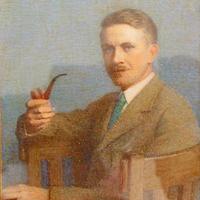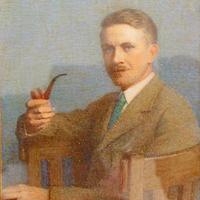A minute before our scheduled interview, author Min Jin Lee picks up the phone at the first ring.
Author Min Jin Lee on anti-Asian violence, his visit to South Korea and more

Earlier this month, the 53-year-old Korean-American author was in Seoul, where she received the 2022 Manhae Grand Prize for Literature.
She was also on hand for events commemorating the brand new Korean translation of her bestselling 2017 novel, “Pachinko.” The translation was released this month, sparking rumors of a record publishing deal. (Lee declined to comment on the monetary figure but said the new edition was more accurate.)
“Pachinko” – an epic depicting four generations of a Korean family – was also recently adapted into a critically acclaimed TV show for Apple TV Plus. The show’s first season, which Lee said she had “no comment on,” was released in March.
These days, Lee is working on her third novel, “American Hagwon,” about Korean after-school academies or “cram schools,” and “Name Recognition,” a non-fiction book. She is also a writer-in-residence at Amherst College.
Between official events in South Korea, she was able to reconnect with her extended family. Lee said it was a “really lovely homecoming” to be able to spend time in the country, where she was born, especially because her parents were able to make the trip.
She also spoke with The Washington Post about her writing, her activism — particularly in the face of rising anti-Asian violence — and the arms race of impossible beauty standards.
This conversation has been edited for length and clarity.
Q: Your work has obviously been recognized before, but this trip seems to mark a certain form of validation, if that’s the word?
A: The Manhae Award – it was really important for me to show up to accept it. Obviously, it’s such an honor to get it, but also as a Korean American writer, I’m the first.
The recognition of someone like you and me, Koreans in the Diaspora, by an established organization is personally very, very meaningful, because I have studied so much about Koreans in the Diaspora and our experience of not being accepted. I’ve also interviewed enough people in Korea who feel rejected and left behind. So there’s an interesting dynamic, and I’d like to see some sort of bridge built by our work and our recognition of what it’s like to be Korean in the world.
Q: Over the past few years in particular, you have been an active voice in talking about anti-Asian rhetoric and violence. One of the things I struggle with when I talk about it is, like the mass shootings, how much does the reporting escalate the situation and inspire further violence? Do you have any thoughts on this?
A: I think the statement that reporting these events will incite more violence and copycat behavior is a statement. Unless I see credible evidence, showing this causation – and also, if I can get counter evidence that if we don’t report on this, it goes away – I will remain skeptical. I think it’s just another way of getting us to shove bad news under the rug, just to brush it aside. And I find that really problematic.
I have a very limited, very niche platform. If I can use it to draw attention and make people realize that it’s not okay to hit our elders, and that people like our parents and you and me shouldn’t be afraid to take the train or ‘to go to work, or to go to our home or go out late at night, I try.
Q: I was just in Korea and went with a friend to get the latest cosmetic procedure, and I have to say, even if you prepare for it, the pressure to get things done can really get to you.
A: I think beauty standards everywhere are just unreasonable. In the United States, Korea and Europe, Africa, South Asia.
… I would say with conviction that the standards of beauty are simply unreasonable everywhere for everyone. And now it’s not just for women, but also for men, and I see a lot of people suffering from it.
Beauty is a form of power. If a woman says I want to be more powerful this way, then I understand. I’m not saying it’s necessarily going to give you power, or the kind of power you want. But it is a form of power. … It’s a very important feminist issue, and I think there should be more studies on it.
Q: People are always interested in a writer’s process. Can you tell us about yours?
A: I read that Willa Cather read a chapter of the Bible every day. So I thought, I’ll try this. So now I read a chapter of the Bible every day before I start writing fiction. I’ve done it since 1995. I must have read it, literally from page to page, about seven times. It was so helpful to understand how things are written, with a long reach.
If you want to understand literature, especially Western literature, it’s almost impossible to do so without a very deep understanding of the Bible, as well as mythology – I mean, Shakespeare knew it coldly. So I’m such a big fan of doing this, you couldn’t really get me to stop now.
Q: You’re a Christian by faith, aren’t you?
A: I am. I go to church every Sunday.
Q: I’m watching the K-drama “Extraordinary Attorney Woo” and just saw the episode about the hagwons, which is the subject of your next book. What interested you in them and what angle do you develop?
A: It is the last novel in a trilogy of a diaspora called the Koreans. My first book is about Koreans in America but particularly in New York [“Free Food for Millionaires”]. It’s also from a certain period – based on the 20th century, especially the latter part. And “Pachinko” is obviously Korean Japanese.
So I thought, how can I understand what unites us all in the world? I had the great privilege of having interviewed thousands of Koreans now in every corner of the globe where I have been permitted to travel. And the one thing that struck me is that I’ve never met a Korean who doesn’t have a strong opinion about education – this very strong emotional aspect about the idea of education and on how you should educate yourself and your family.
The more I searched, the more I thought, what is my central metaphor? I realized it was hagwon — not that everyone went to hagwon. But it’s a metaphor for me in the same way that “Pachinko” works as a metaphor, or what I think is a philosophy of life, for so many people who have been oppressed, in an unjust society.
… I’m working on it now trying to explore what education means for Korea, for Koreans and Koreans in the Diaspora. So what I really write is wisdom.




